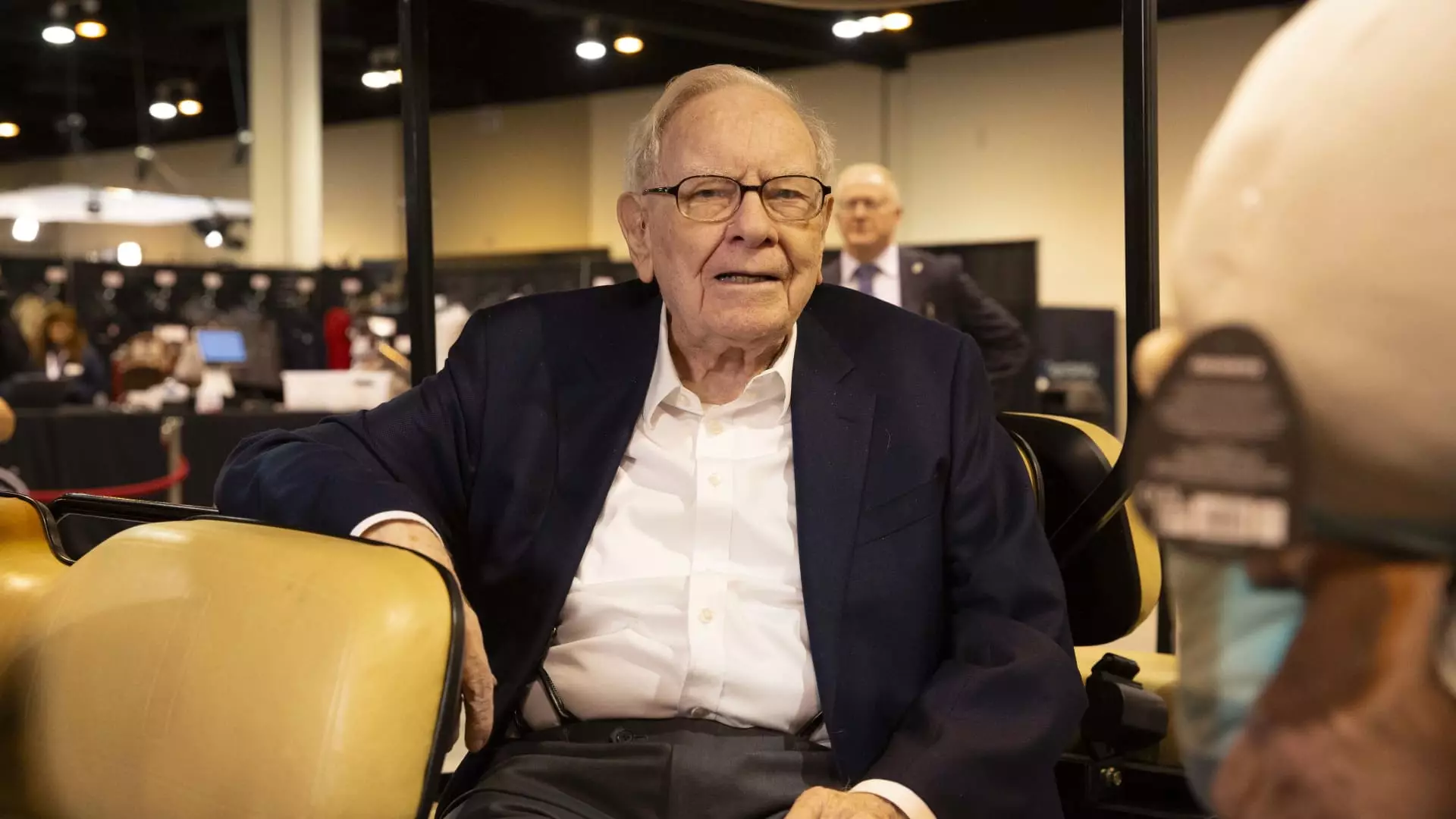The investment landscape has often been drawn in stark dichotomies of winners and losers, and in 2025, few have exemplified that contrast more dramatically than Warren Buffett’s Berkshire Hathaway. While the broader market has struggled—a stark 6% downturn for the S&P 500—Berkshire Hathaway has soared with a remarkable 17% return. This divide raises critical questions about what constitutes sound investment strategy in an increasingly unpredictable economic climate.
Buffett’s Unwavering Faith in Quality
Warren Buffett isn’t merely riding coattails; his philosophy operates on a level scarcely matched by his contemporaries. The Oracle of Omaha’s strategy relies on a fundamental belief in quality over quick gains, even when short-term volatility shakes the market. His decision to retain a significant amount of cash, trimming stakes in high-performing stocks like Apple, is a pointed rebuttal to the prevailing frenzy of momentum investing that has characterized the market for years. Investors are becoming disillusioned with solely chasing trends, and Berkshire’s performance stands as a testament to the merits of substantial, calculated exposure to quality assets.
His guiding principle remains steadfast: invest primarily in American equities for long-term growth. Yet this strategy raises eyebrows—shouldn’t investors diversify globally or chase short-term profits? Berkshire’s outcome answers that question resoundingly: a staggering 185% return over five years vastly outstrips the S&P’s performance. The lesson is there for the taking: intentional, quality-driven investments in solid companies can provide security and robust returns even against the tumult of market sentiment.
The Annual Meeting: More than Just a Stockholder Gathering
As the annual Berkshire Hathaway shareholder meeting approaches, it turns into both a pilgrimage for committed investors and a diagnostic tool for the financial community. This gathering transcends the traditional model of corporate meetings; it’s a cultural event that embodies Buffett’s pragmatic approach to investing. The media coverage it garners serves as a stark comparison to the seemingly lackluster engagements of other corporations, where cold presentations about quarterly earnings fail to ignite passion or loyalty.
Attendees don’t merely come to discuss profits; they come to absorb knowledge from Buffett and his long-time business partner, Charlie Munger. The value of such insight in a world clouded by complexity cannot be overstated. It’s an opportunity for dialogue that shapes investment philosophy, urging shareholders to think not just in terms of the next quarter, but in terms of sustainable growth.
The Rise of ETFs and Demand for Income
Further intriguing is the recent emergence of investment products like the VistaShares Target 15 Berkshire Select Income ETF, which aims to cater to investors craving the stability of Buffett’s strategies combined with the expectation of dividends—a feature Berkshire itself does not provide. The ETF allows retail investors a chance to “invest like Buffett” while also meeting their demand for income via a unique model of selling call options.
This kind of financial product embodies a glaring shift in investor priorities. Many no longer wish to adhere to stringent traditional investment methodologies. Instead, they seek flexibility within their portfolios, a stance that reflects an evolving economic landscape where trust in dividends has declined. People are learning that chasing traditional wisdom may lead to missed opportunities, especially when innovative structures, like income-generating ETFs, offer new avenues of to effortlessly blend income generation and value investment.
Fundamentals of Berkshire’s Portfolio: A Masterclass in Diversification
Examining Berkshire’s portfolio reveals a microcosm of what informed investment should look like. With top holdings encompassing a mix of tech (Apple), financials (American Express, Bank of America), and consumer goods (Coca-Cola, Kroger), the diversification isn’t just tactical; it’s strategic. It debunks the myth that strong performance in any single sector guarantees renown. Instead, it illustrates the folly of concentration—an epic risk that BUFFET’s investment style are explicitly designed to avoid.
By investing in a multitude of sectors—each with differing cycles and growth potential—Berkshire demonstrates a vigilant understanding of market dynamics. While some investors fixate on trends, Berkshire shows that focusing on timeless business fundamentals across diversified sectors can yield enduring returns, a lesson often lost amid noise and frenzy.
In an age increasingly characterized by volatility and uncertainty, Warren Buffett’s Berkshire Hathaway offers a critical reflection on strategic investing. Its remarkable performance amid market fluctuations is not just luck but a masterclass in what long-term commitment, quality selection, and thoughtful diversification can achieve—a lesson for any investor hoping to navigate today’s complex financial landscapes.

